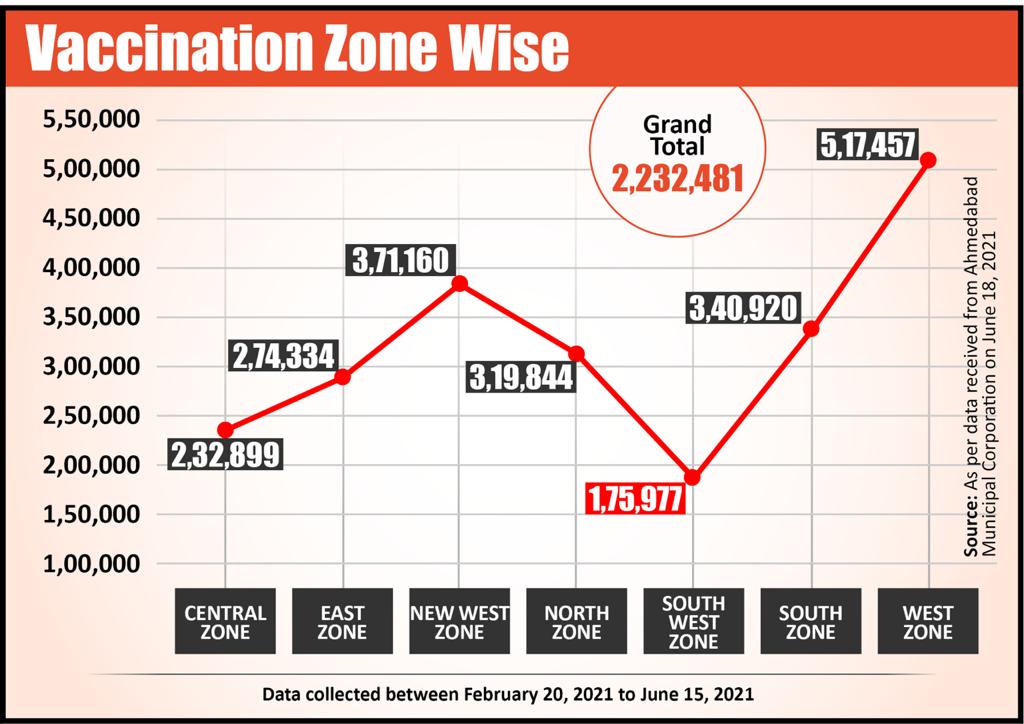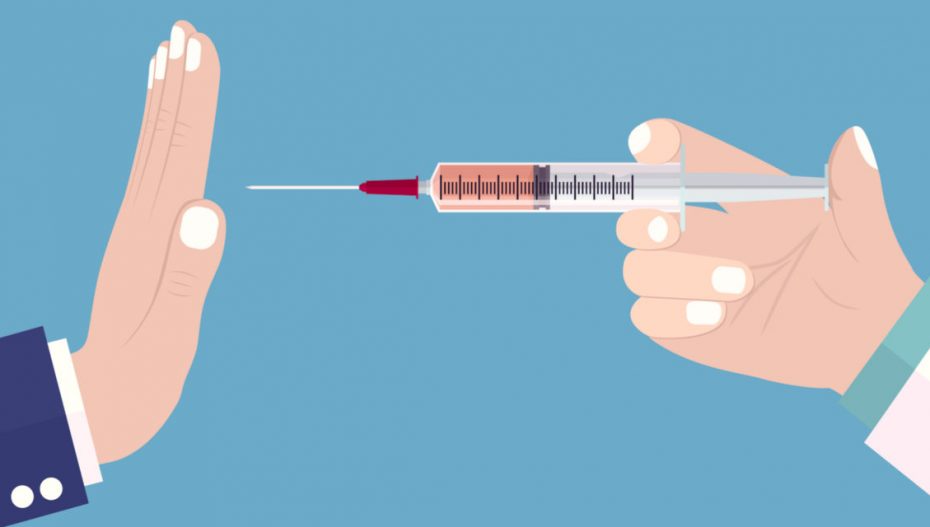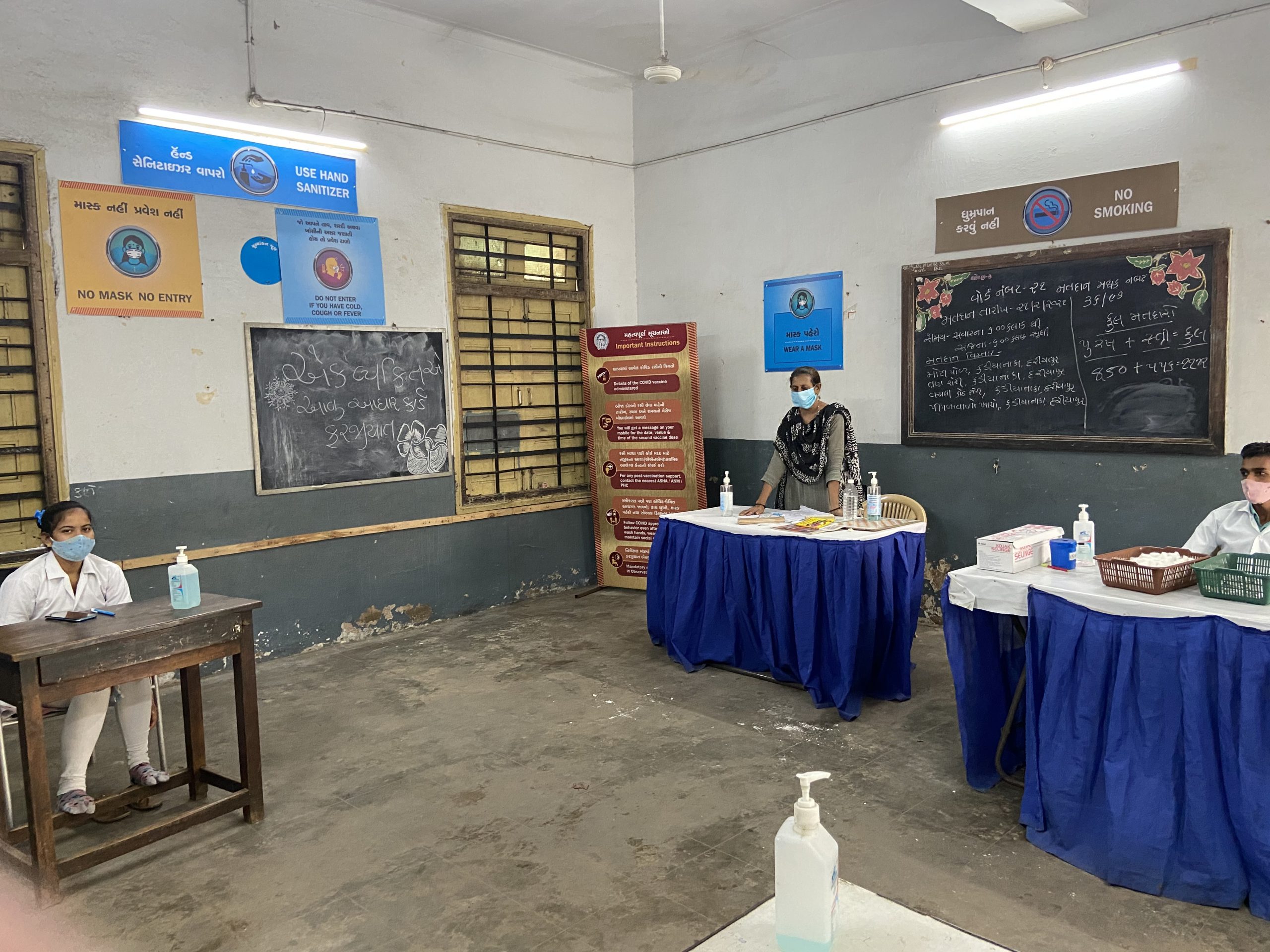It was a 20-second video, but it was long enough to inject doubts about the Covid-19 vaccine.
It was a forward that Sharda Parmar, a resident of Juhapura in the South-West zone of Ahmedabad Municipal Corporation, received on her phone.
“The video talked about how anyone who takes the Covid-19 vaccine will suffer a paralytic or epileptic attack, after which the person might die,” said Sharda. “There was no data or attribution in the video, just visuals with this claim in a bold font.”
A housewife, 38-years-old Sharda, did not fall for it. She researched the pros and cons of taking the Covid vaccine. “The pros greatly outweighed the cons. So here I am, taking my first dose,” she said while standing in a queue at a vaccination centre set up by the AMC last week.
Sharda is, however, more of an exception than the rule in her locality.
The South-West zone of the AMC, which includes areas such as Maktampura, Sarkhej-Juhapura, Asarwa, and Jodhpur, has the fewest vaccine takers across the corporation limits, official data revealed.

Dr. Bhavin Solanki, medical officer, AMC, said parts of the South-West zone were showing more vaccine hesitancy than the other areas owing to lack of awareness and swirling rumours of post-immunisation side effects.
A senior health official from the AMC, who requested anonymity, said people in these areas have been hesitating to take the jab since the drive kicked off earlier this year.
Maktampura councillor Mahmmad Juber, however, said the awareness drive required before or during any immunisation program was missing in the Muslim areas when compared to the non-Muslim parts of the city.
“Forget vaccination, when the second wave was at its peak, the corporation did not set up a single for-free testing tent in Maktampura,” Juber said. “The only one at the Urban Health Centre was located in a crowded place and people were scared to go there.”
“We are doing everything from our side,” he added, “but the corporation needs to step up its game if it wants to increase the vaccination figures in Maktampura.”
In Juhapura, councillor Haji Asrarbaig Mirza said the auxiliary nurse midwives and Asha Workers have been working round-the-clock to create awareness.
Mirza had held a camp on June 21 in association with the non-profit Saath Sanstha to provide vaccines, but he did it after conducting a door-to-door awareness drive.
“People are scared of something bad happening if they take the vaccine,” Mirza said. “Some are not taking it due to religious reasons as well. But we are doing our best and are confident of improving the numbers over the days.”
He thanked the corporation for allowing them to hold vaccination camps in Juhapura.
Asarwa councillor Menaben Patni said there was vaccine hesitancy in the Devipujak community, too. Fake news, she admitted, was circulating rampantly and many were falling for it.
“To create awareness, my husband and I took the vaccine ourselves and circulated the photos among the community members via social media,” said Patni.
Barely 50 people showed up at a recent vaccination camp she arranged for. She said, “So far, more men are taking the vaccines than women.”
Bhartiben Gohil, councillor of Jodhpur, also in the South-West zone, said the response had improved with on-site registration being allowed.
The Union health ministry had enabled on-site registration for all adults recently after the Supreme Court’s criticism of the Centre’s vaccination policy. As per the new policy, the Centre is providing free vaccines at government centres to all adults.
“Citizens were experiencing difficulties in getting slots online on CoWIN when it was mandatory,” said Gohil. “Permission for on-site registration has improved the response.”













